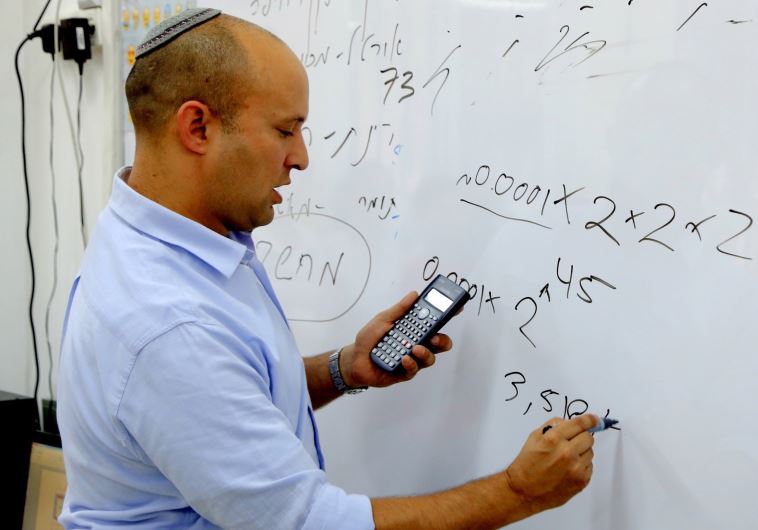Education minister presents NIS 22 million ‘cultural basket’ for pupils
Until now, most students attended cultural events that were not subsidized, or saw few shows, according to the Education Ministry.
 Education Minister Naftali Bennett teaching math to students in Petah Tikva, May 28.(photo credit: COURTESY EDUCATION MINISTRY)
Education Minister Naftali Bennett teaching math to students in Petah Tikva, May 28.(photo credit: COURTESY EDUCATION MINISTRY)